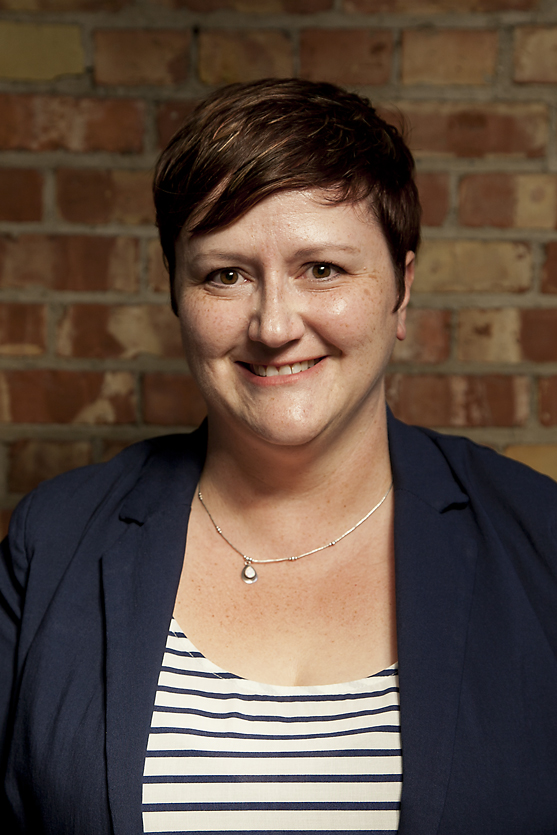Barbara Munoz
Degree: MPP
Class of: 2013
Favorite course: Policy and Program Evaluation
Job Title: Policy Analyst
Tell us a bit about your current position?
I work as a policy analyst for Community Action Partnership of Utah (CAP Utah), an organization that is part of a nationwide network of Community Action Organizations established as part of the War on Poverty in the 1960s. The type of work I do varies during the year, but is all focused on studying issues of poverty in Utah and advocating for policies that will help those struggling with poverty to find the assistance they need to gain self-sufficiency. Each year, CAP Utah publishes a report on poverty in Utah, works with other advocacy organization to lobby for policy change during the legislative session, encourages civic engagement on the part of those most affected by poverty, sponsors a poverty conference for service providers throughout the state, and also coordinates a statewide tax assistance program for low-income individuals and families. My position is responsible for the poverty report, working with legislators and state agencies throughout the year on policy changes, and outreach in the community educating others about poverty in Utah.
What is exciting about what you do?
I really enjoy building relationships with community members and stakeholders. Anytime I am asked to present to one person or to a large group about poverty in Utah, I am more than happy to provide any education they need.
What aspect are you most proud of?
Writing the poverty report is an arduous task, but it is a labor of love.
What aspect has the most impact?
Being able to back up your policy ideas with actual data is so important. Sometimes in Utah there can be a tendency to “legislate by anecdote” so, the more data-based evidence advocates for the underserved can utilize in their efforts, the stronger their chances of shaping policies that truly have an impact on the populations in need.
How would you explain what you do to someone who does not understand your work?
Because I think I’m funnier than I actually am, I often use the following example: “You know how big oil companies have highly-paid lobbyists who work to get laws passed that benefit oil companies? Well, I do that for people in poverty and don’t get paid nearly as much.”
What led you to your current position?
I started a career in radio right out of high school that lasted for about 10 years. When I was laid off in 2002, I decided it was time to find a “grown-up” job and wanted to look into working in nonprofit. I started out serving as an AmeriCorps VISTA for one year at a local nonprofit which eventually led to a full-time job at that organization. After a few years in nonprofit, I worked at Department of Workforce Services (DWS), which is where I developed my interest in policy. I was fascinated with understanding the way federal policies trickled their way down through the process of implementation to affect the lives of clients I served. After leaving DWS to start the MPP program, I was incredibly fortunate to get a job with Voices for Utah Children – one of the finest advocacy organizations in the state.
How has having an MPP helped your career?
I am so glad I chose the MPP program for grad school. I was a non-traditional student and did not graduate with my B.S. in Communication until I was 30. Being an older student in both undergrad and grad school helped me appreciate the real-life application of the concepts I learned in both programs. The focus of the MPP is what I valued most about the program. I feel as if each course builds nicely on the other and concepts are repeated in different contexts throughout the course work. I have talked to several employers who have expressed their admiration for the caliber of work produced by MPP graduates and that once they have hired one, they continue to hire other people from the program.
Why was your favorite course your favorite?
I found incredible value in all the courses, but the most useful (and one of the most difficult) was Policy and Program Evaluation. Dr. Zick does a phenomenal job of tying the entire program together and challenges you to become a critical consumer of policy. You may shed some tears during this course, but you’ll come out adequately prepared to take on the world of policy!
Advice for those thinking about or going through the MPP program now?
I’ll start with the obvious: nonprofit work does not pay particularly well. This is not a career you get into because you want to have extra money to buy a summer cabin. Also, not all nonprofits are created equal. People who working in nonprofit n Utah for a few years know LOTS of other people who work in nonprofit. Just as you would for a for-profit or government job, do your research before you apply and see if the organization is one where you are passionate about the work, are a good fit with the staff, and if the organization is financially sound. All that being said, work in nonprofit can be incredibly rewarding. I have developed outstanding relationships with many of my colleagues and love how much coalition-building happens among nonprofits with similar goals. Most of all, I feel incredibly humbled being able to give voice to populations who often go unheard.

